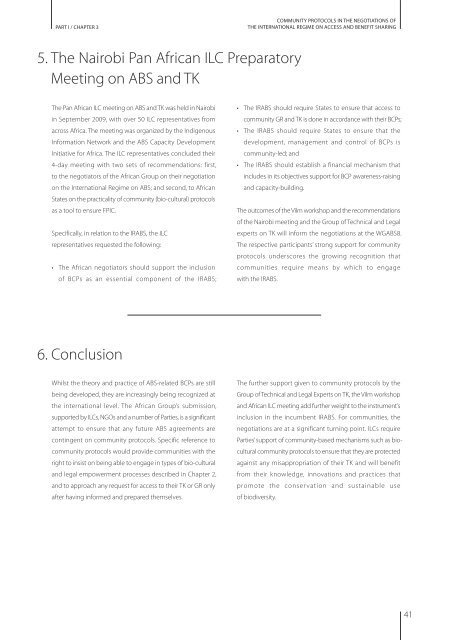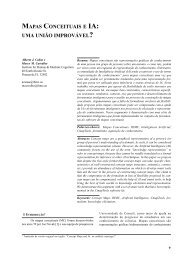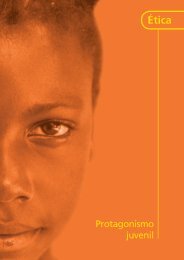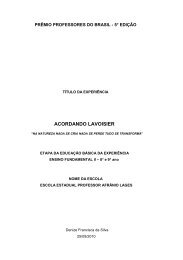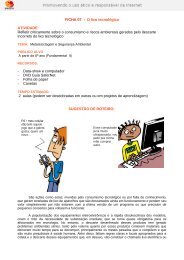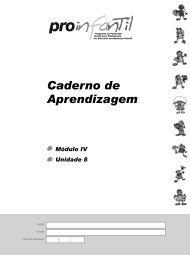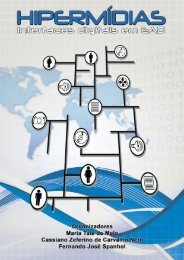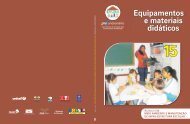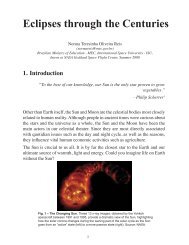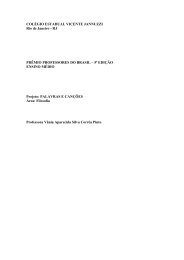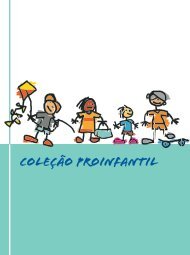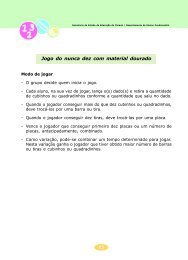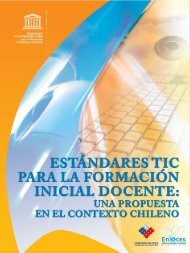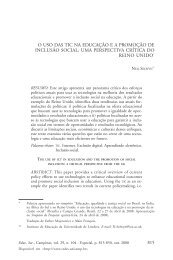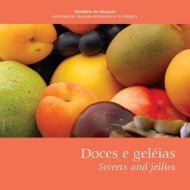BIO-CULTURAL COMMUNITY PROTOCOLS - Portal do Professor
BIO-CULTURAL COMMUNITY PROTOCOLS - Portal do Professor
BIO-CULTURAL COMMUNITY PROTOCOLS - Portal do Professor
You also want an ePaper? Increase the reach of your titles
YUMPU automatically turns print PDFs into web optimized ePapers that Google loves.
PART I / CHAPTER 3<br />
5. The Nairobi Pan African ILC Preparatory<br />
Meeting on ABS and TK<br />
The Pan African ILC meeting on ABS and TK was held in Nairobi<br />
in September 2009, with over 50 ILC representatives from<br />
across Africa. The meeting was organized by the Indigenous<br />
Information Network and the ABS Capacity Development<br />
Initiative for Africa. The ILC representatives concluded their<br />
4-day meeting with two sets of recommendations: first,<br />
to the negotiators of the African Group on their negotiation<br />
on the International Regime on ABS; and second, to African<br />
States on the practicality of community (bio-cultural) protocols<br />
as a tool to ensure FPIC.<br />
Specifically, in relation to the IRABS, the ILC<br />
representatives requested the following:<br />
• The African negotiators should support the inclusion<br />
of BCPs as an essential component of the IRABS;<br />
6. Conclusion<br />
Whilst the theory and practice of ABS-related BCPs are still<br />
being developed, they are increasingly being recognized at<br />
the international level. The African Group’s submission,<br />
supported by ILCs, NGOs and a number of Parties, is a significant<br />
attempt to ensure that any future ABS agreements are<br />
contingent on community protocols. Specific reference to<br />
community protocols would provide communities with the<br />
right to insist on being able to engage in types of bio-cultural<br />
and legal empowerment processes described in Chapter 2,<br />
and to approach any request for access to their TK or GR only<br />
after having informed and prepared themselves.<br />
<strong>COMMUNITY</strong> <strong>PROTOCOLS</strong> IN THE NEGOTIATIONS OF<br />
THE INTERNATIONAL REGIME ON ACCESS AND BENEFIT SHARING<br />
• The IRABS should require States to ensure that access to<br />
community GR and TK is <strong>do</strong>ne in accordance with their BCPs;<br />
• The IRABS should require States to ensure that the<br />
development, management and control of BCPs is<br />
community-led; and<br />
• The IRABS should establish a financial mechanism that<br />
includes in its objectives support for BCP awareness-raising<br />
and capacity-building.<br />
The outcomes of the Vilm workshop and the recommendations<br />
of the Nairobi meeting and the Group of Technical and Legal<br />
experts on TK will inform the negotiations at the WGABS8.<br />
The respective participants’ strong support for community<br />
protocols underscores the growing recognition that<br />
communities require means by which to engage<br />
with the IRABS.<br />
The further support given to community protocols by the<br />
Group of Technical and Legal Experts on TK, the Vilm workshop<br />
and African ILC meeting add further weight to the instrument’s<br />
inclusion in the incumbent IRABS. For communities, the<br />
negotiations are at a significant turning point. ILCs require<br />
Parties’ support of community-based mechanisms such as biocultural<br />
community protocols to ensure that they are protected<br />
against any misappropriation of their TK and will benefit<br />
from their knowledge, innovations and practices that<br />
promote the conservation and sustainable use<br />
of biodiversity.<br />
41


